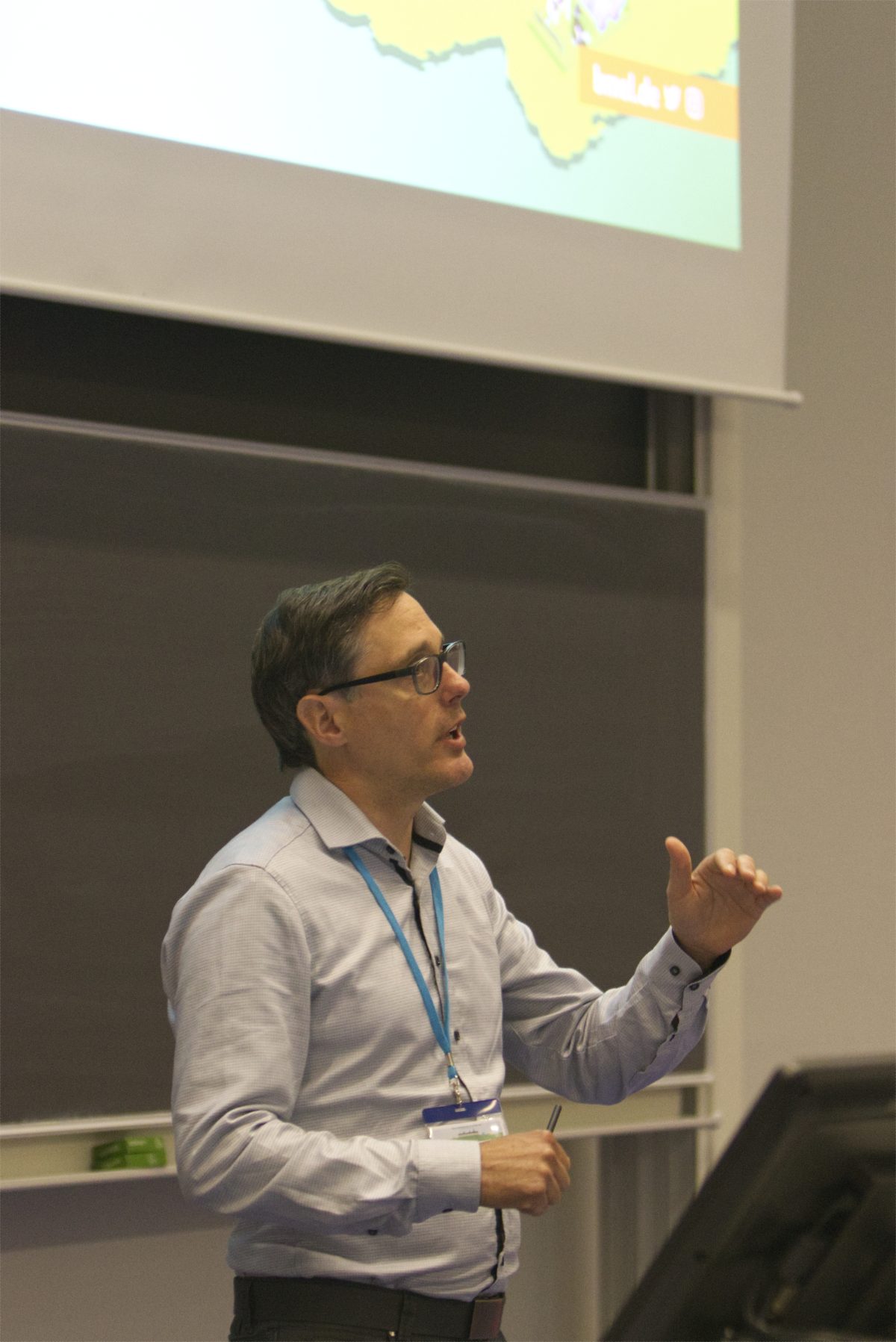Tobias Federwisch on the digitalization of the countryside in Germany | Smart.Rural.Regions
Tobias Federwisch of the German Ministry of Food and Agriculture gives a presentation on the digitalization efforts in rural areas. He starts by explaining why digitalization of the countryside is important. Digitalization and technology have radically changed the way we live. It has a huge impact on how we work and live. There are major gaps between urban and rural areas; some areas are highly connected, and others are not connected at all. It is important to keep rural areas attractive. By connecting those areas and supporting projects that create an online as well as an offline digital ecosystem, the countryside can become better connected.
The German Ministry’s The Federal Rural Development Scheme (BULE) promotes model projects, model regions, contests, research, and knowledge transfer. Local communities transform rural areas into dynamic laboratories of the future for the development of society. This scheme has supported more than 2000 projects already. The digitalization efforts are an important part of this scheme.
smart.rural.regions aims to digitally connect rural areas by funding and co-creating digital ecosystems together with local stakeholders, online and offline
Its pilot project Smart.Rural.Areas consists of several projects with have been initiated bottom-up. Projects that received funding are in 7 regions across Germany, which have become the model regions for future implementation in other areas. 13 more projects will benefit from funding in 2022-2024. Incorporating innovative technologies is essential to maintain the appeal of rural areas as desirable places for residence and employment. This is especially relevant for technologies that are vital for the future, such as electric mobility, online learning, digital education, telemedicine, and flexible work. Additionally, digital connectivity and promotional efforts can enhance social and cultural services in rural communities.
One project is concerned with connecting daycare centers in rural areas with cultural or educational organizations. Children can take daytrips there. A digital platform for renting houses or spaces in rural areas has been set up in another region, bringing supply and demand together. A project in healthcare bring local hospitals, patients, caretakers and insurance companies together.
The Fraunhofer Institute for Experimental Software Engineering (IESE) has the task of collaborating with the model regions to transform technical advancements, conduct tests, and conduct research on important digital solutions in real-world scenarios. They are also responsible for establishing a “digital ecosystem” to consolidate these services and guarantee their transferability in the future.
In the discussion with the audience, the question is raised how projects are selected. Federwisch points out that they must be solution driven. There are some criteria, technical and non-technical, and there is no one size fits all solution. You also need to reach out to local stakeholders, e.g., in healthcare projects you need to speak to local doctors, patients and insurance companies. The development of a non-digital space as well as a digital space is just as important. That is the only way to bring stakeholders together. That is why the non-technical part of the digital ecosystem is vital in these projects. Federwisch finally points out the participation within the regions is the key element to success.
